So You Think You Have OCD?
A Beginner’s Guide to Navigating The Unknown
Escrito por Esther Fernandez
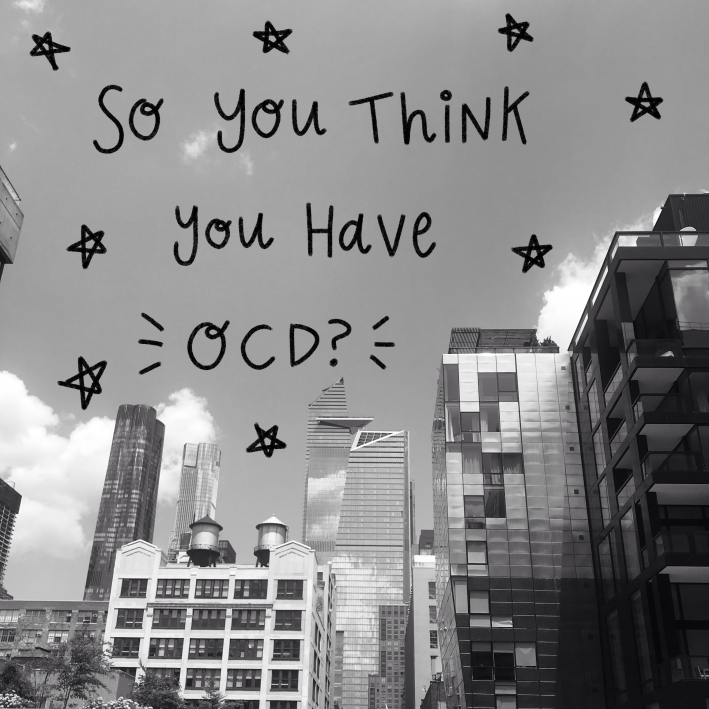
01 Esther describes what she wishes she knew at the beginning of her OCD journey.
02 Although OCD can be overwhelming, it's important to find the right treatment and stick to it.
03 Despite what your intrusive thoughts tell you, live life as if you didn't have OCD. And know things can get better.
You did it. You finally googled “unwanted thoughts.”
You found an article describing the nightmare you've been living. You sat in the therapist’s office and received a diagnosis you never expected to hear: obsessive compulsive disorder.
Let me be the first to tell you, that while this journey will be hard, OCD can be managed. Half the battle is figuring out you have it, so feel proud for making it this far!
Because this condition is underrepresented and underdiagnosed, we sufferers usually have to be our own advocates when it comes to finding treatment and support. But when you live with a “doubting disorder”, navigating these things can be hard. Too often, exhausted and scared people delay treatment because they don’t understand what OCD recovery entails. So in an effort to help, I’m sharing the things I wish I knew at the beginning of my own OCD journey.
Things get better.
When OCD turned me from my regular self to a non-functioning human, I thought things would never get better. I thought I would never be the same person again. My brain was broken beyond repair. I couldn’t picture a life without intrusive thoughts. Wah wah wah, OCD made me dramatic.
Well, I was half correct. The intrusive thoughts don’t go away, but things do get better. Hope is vital on this journey, because it helps us push onto another day even when everything around us feels like it's collapsing. I imagine you’re exhausted in every sense — emotionally, physically, spiritually. So hope is necessary. Cling to that.
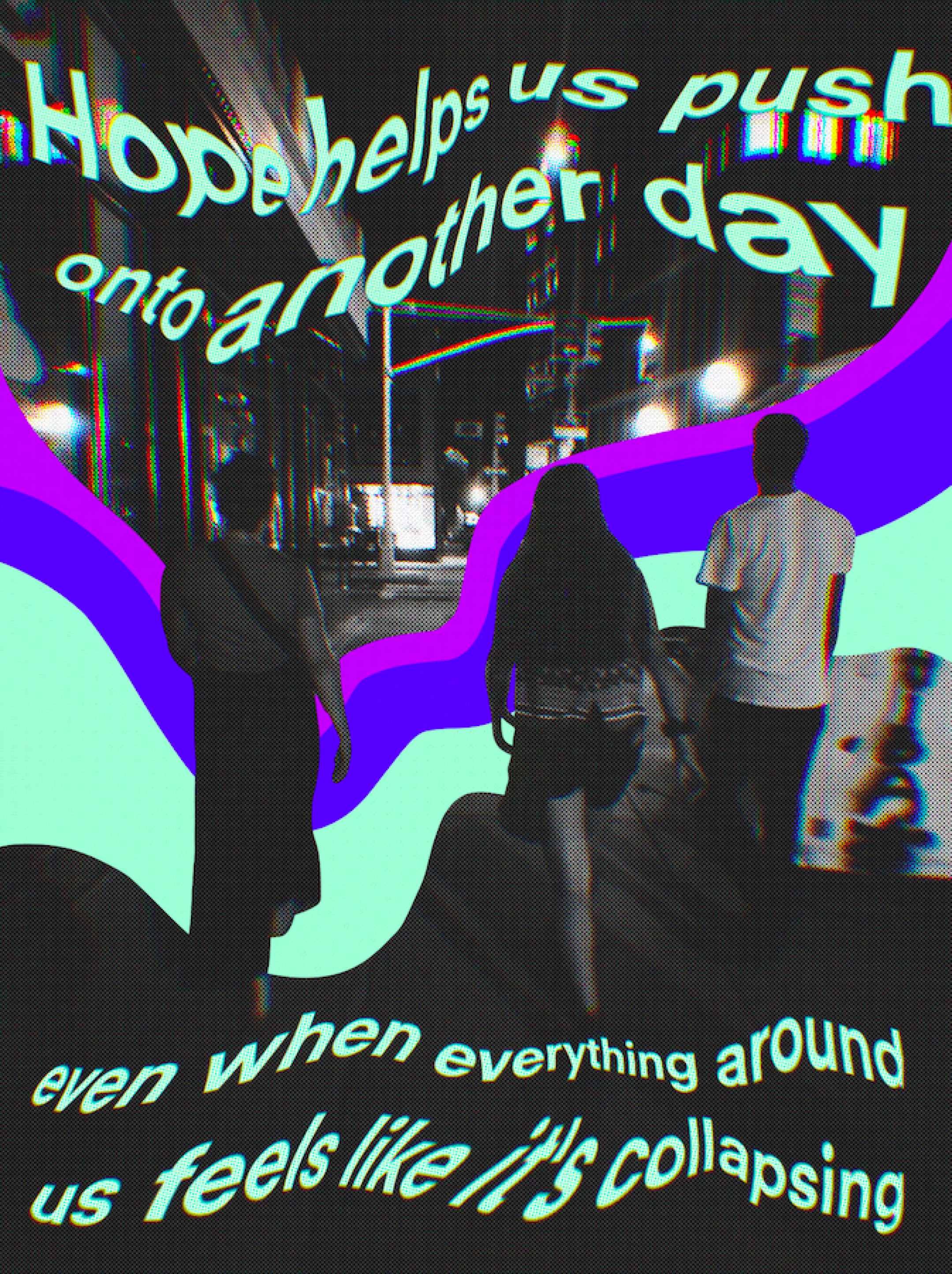
The work is hard, but you gotta do it.
For an actual breakdown on OCD, visit our OCD page. In it, you’ll see us mention something called ERP. Exposure and response prevention is the gold standard for treating OCD. It means exposing yourself to your fears so that you can teach your brain to tolerate the uncertainty. (You’ll hear that a lot in the OCD world: tolerating uncertainty. It’s our least and most favorite phrase).
The issue with OCD is that we crave definitive answers. We want to know for sure that we aren’t contaminated, axe-murderer, sexual deviant, affair-having, video-game-simulation, suicidal, creatures. So we do compulsions. We avoid triggers. We ruminate and reassure ourselves. This is what keeps us in the cycle.
ERP forces us to do the opposite. When OCD tells us, “I must know the answer” ERP says, “No you don’t. Stay uncomfortable.” Then it mic drops and leaves us there, in a panic that all our worst fears will come true.
When people hear that they need to expose themselves to the things they’ve been running away from, they say, “No thank you<3” Then they perform compulsions and wonder why they aren’t getting better. Don’t be this person.

You can’t compulsion your way out of this. I once heard someone say, “If OCD is hell, ERP is the way out. And it’s located in the deepest part.” Which sounds really fun and great and cool. But I promise you, it’s true.
Remember when I told you to hold onto hope? This is where it kicks in. You gotta believe things will get better even when the work is scary. I know you’re tempted to get reassurance and ask, “But did you have this theme, and these specific intrusive thoughts, and did it get better?” But now is a good opportunity to sit with uncertainty. Make the leap of faith and do ERP no matter what the intrusive thoughts look like.
I know this can be especially scary with taboo intrusive thoughts. But again, as long as you find a qualified therapist, go to therapy even when your mind is throwing worst case scenarios at you.
Get a good therapist.
I have to preface by saying that the system often works against us. OCD specialists are typically out of network, meaning you have to pay out of pocket. Sessions are expensive. Waitlists are long. Finding an actual qualified person takes effort.
Start by using therapy directories like the IOCDF’s, Open Path Collective’s, or Psychology Today’s with an emphasis on OCD and ERP trained clinicians. Keep in mind, they don’t vet everyone who goes through, so make sure to ask your therapist questions like: How do you treat OCD? What themes are you familiar with? What would an ERP plan look like? What are your credentials?
Exposure and response prevention is the gold standard treatment for OCD. It’s often paired with other treatments like mindfulness-based CBT, Acceptance and Commitment Therapy, and medication. Be wary of therapists that offer treatments like hypnotherapy or regular talk therapy, which try to get to the root of your intrusive thoughts. This is counterproductive and can make things worse.
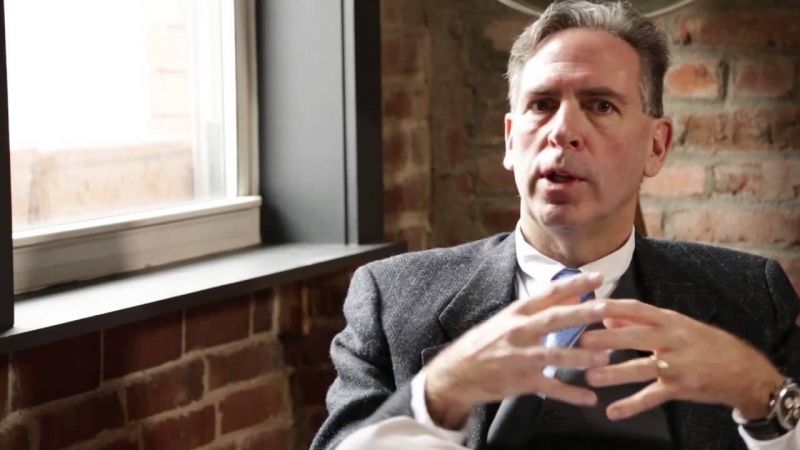
Choosing Exposure Response Prevention (ERP) Therapy
Remember, you’re paying someone for a service, so make sure you’re getting your money’s worth. Don’t be afraid to call different places. If you can spend half an hour choosing the perfect Netflix series to binge, you can spend half an hour finding the right specialist.
There are also a lot of people online who are not therapists, but will claim to cure your OCD. Chances are they will not be backed by actual scientific evidence or valid credentials. Please, please, please do not give them your money. I know it’s tempting to believe them, but don’t let people take advantage of you when you’re vulnerable.
Don’t seek reassurance online.
So you tried to find community through a forum or Facebook group or Instagram comment section, but now you’re stuck in reassurance central. People posting every question about every intrusive thought they have. The comments flooded with answers to help soothe them. Everyone naming random medications they are on.
Well if the goal is to tolerate the uncertainty, then I think these groups are the antonym. This isn't to say there aren't good groups out there (there 100% are), but more often than not, they just aren't well regulated enough. You should be cutting out compulsions as much as possible, so try to stay out of places that enable you to do them.
The same rules apply anywhere you get involved online: refrain from participating if it’s feeding your OCD. I will embarrassingly admit that I used to watch every livestream, hear as many podcast episodes as I could at two times speed, and binge Youtube videos because I thought I’d find a magical reassuring answer somewhere. All of these resources should aid your recovery. If you feel like you’re engaging in something out of desperation, step back and — you guessed it — sit with the uncertainty.
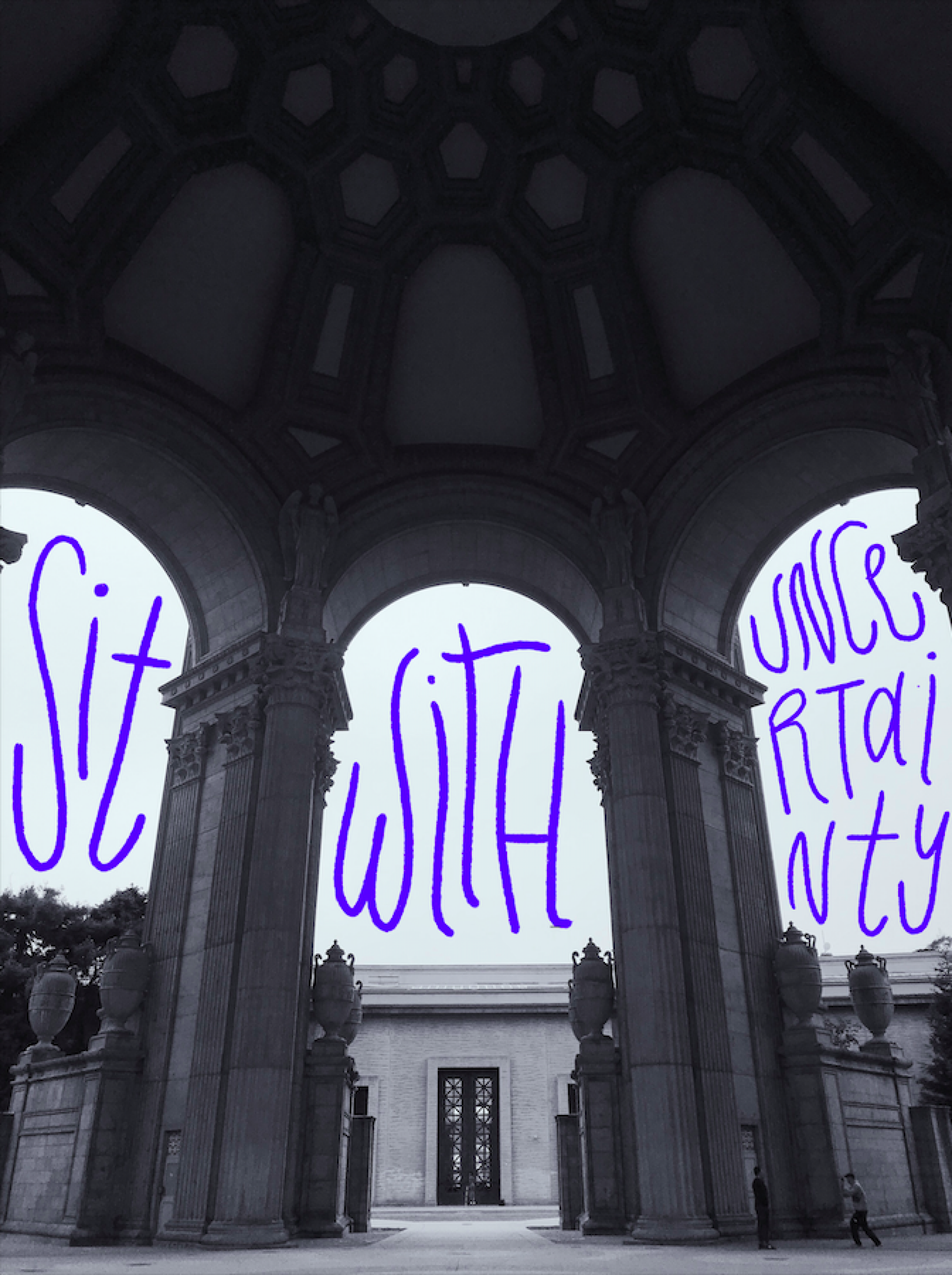
Do join a support group.
I would argue that support groups are the next most important thing to therapy. Having fellow sufferers to connect with helps you feel less alone, especially with a condition that often causes isolation. Also, they're the only group of people who can laugh about jokes like, “Today I had to drive and picture hitting every person on the sidewalk.”
Try to engage in morbid, hilarious, uplifting conversations. Make sure the group you join is well-regulated and doesn’t give out reassurance. Or ask for ridiculous amounts of money. An unsupervised support group that charges $200 per meeting is called a scam.
You can find a support group through the IOCDF Directory.
Don't feel pressured to tell your whole story.
With OCD, there can be a thin line between advocacy and guilty confession. Many people like to openly share their story. It’s a great way to validate their experiences and destigmatize the condition. But you don’t need to do the same if it doesn't seem right. Plus, sometimes confession is a compulsion. If you feel “required” to share, double check where that urge is coming from.
Most importantly, remember that not everyone is in the best position to discuss their taboo thoughts. The stigma around them remains high, and sometimes vulnerability comes with real risk. This doesn’t make your OCD less valid, and it doesn’t make you a bad advocate. People with PTSD aren’t expected to recall traumatizing events to everyone they meet. People with psychosis aren’t obligated to describe their hallucinations. The same should apply to people with OCD.
You are still you.
When something as debilitating and time consuming as OCD takes over our life, we can forget we are living breathing human beings that can do things like skate and knit and cook. Those may seem trivial to non-sufferers, but leisure can feel impossible for people constantly living in fight-or-flight mode.
Believe it or not, there will come a day when you will do what you love and actually have the headspace to be present and enjoy it. The dark clouds will finally clear up and you will realize that the core of who you are has been there all along.
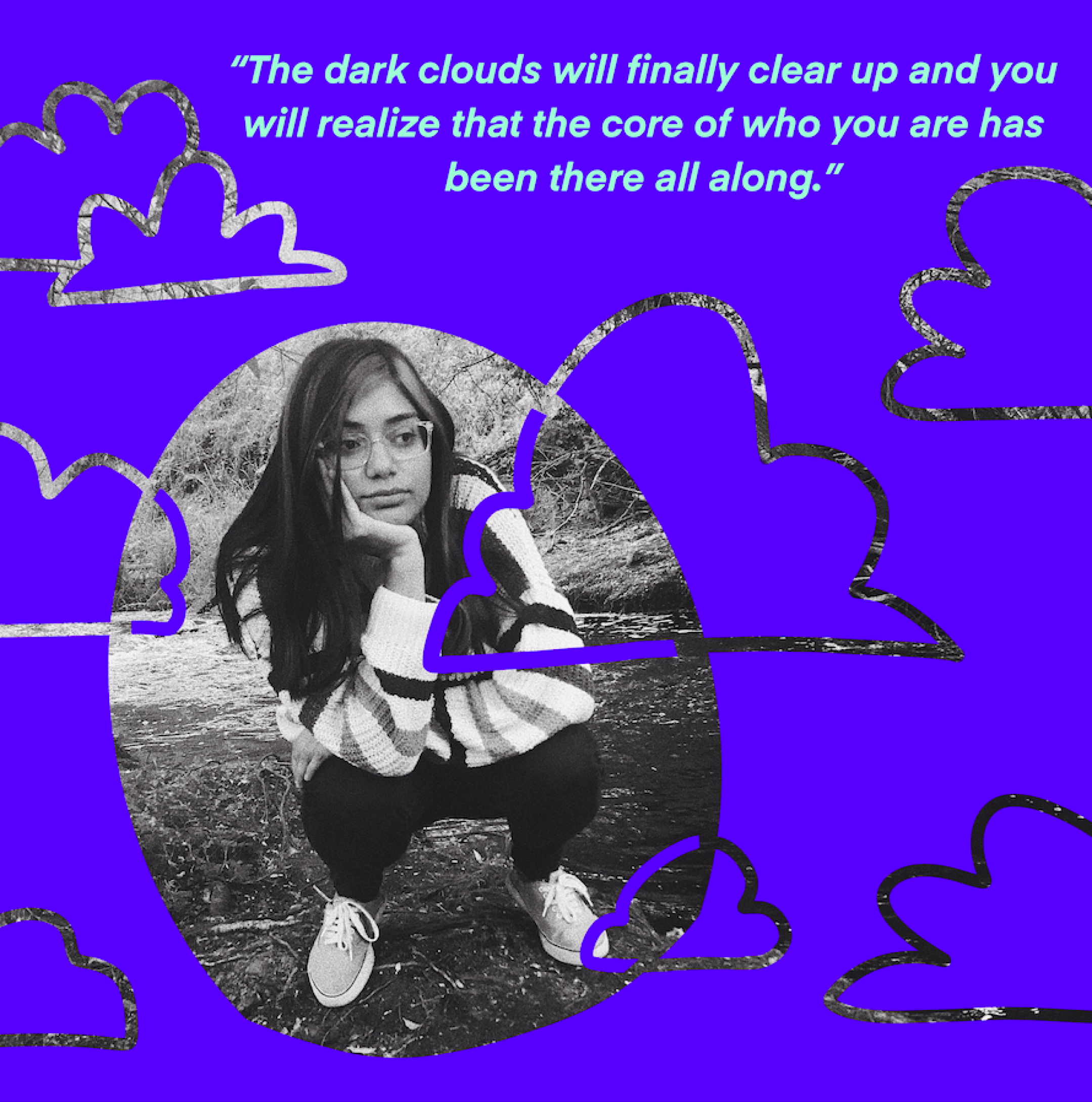
When we experience a major life event — a breakup, death, unemployment, a new diagnosis — one of the worst parts is loss of identity. Who am I now that my loved one left? What do I make of myself now that I don’t have a job? Can I ever get the old “me” back before intrusive thoughts came?
Healing begins when we realize that events shape us, but don’t single-handedly define us.
Of course it will hurt. We are changed people after experiencing suffering. You will have lost time, relationships, schooling, birthdays, etc. to OCD. But even with all of this loss, you never permanently lost yourself. You are not irrevocably damaged. The part of you that is made up of hopes, values, humor, and favorite songs will always be there, no matter how bad the intrusive thoughts get.
Live life as if you didn't have OCD.
One of the best pieces of advice I’ve heard is to not make decisions for my OCD.
If you’re scared to choose a certain career path because your intrusive thoughts feel too taboo, choose the job anyway. If you’re scared to go on a trip, get into a relationship, watch a movie, because OCD is lurking in the background, do those things in spite of your intrusive thoughts.
At the core of ERP treatment is the commitment to choosing our values and interests over fear. Coming from someone who nearly died from a want of certainty, I will tell you now that distrust is the loneliest road of self damnation, worse than any future possibility your OCD fears to be true.
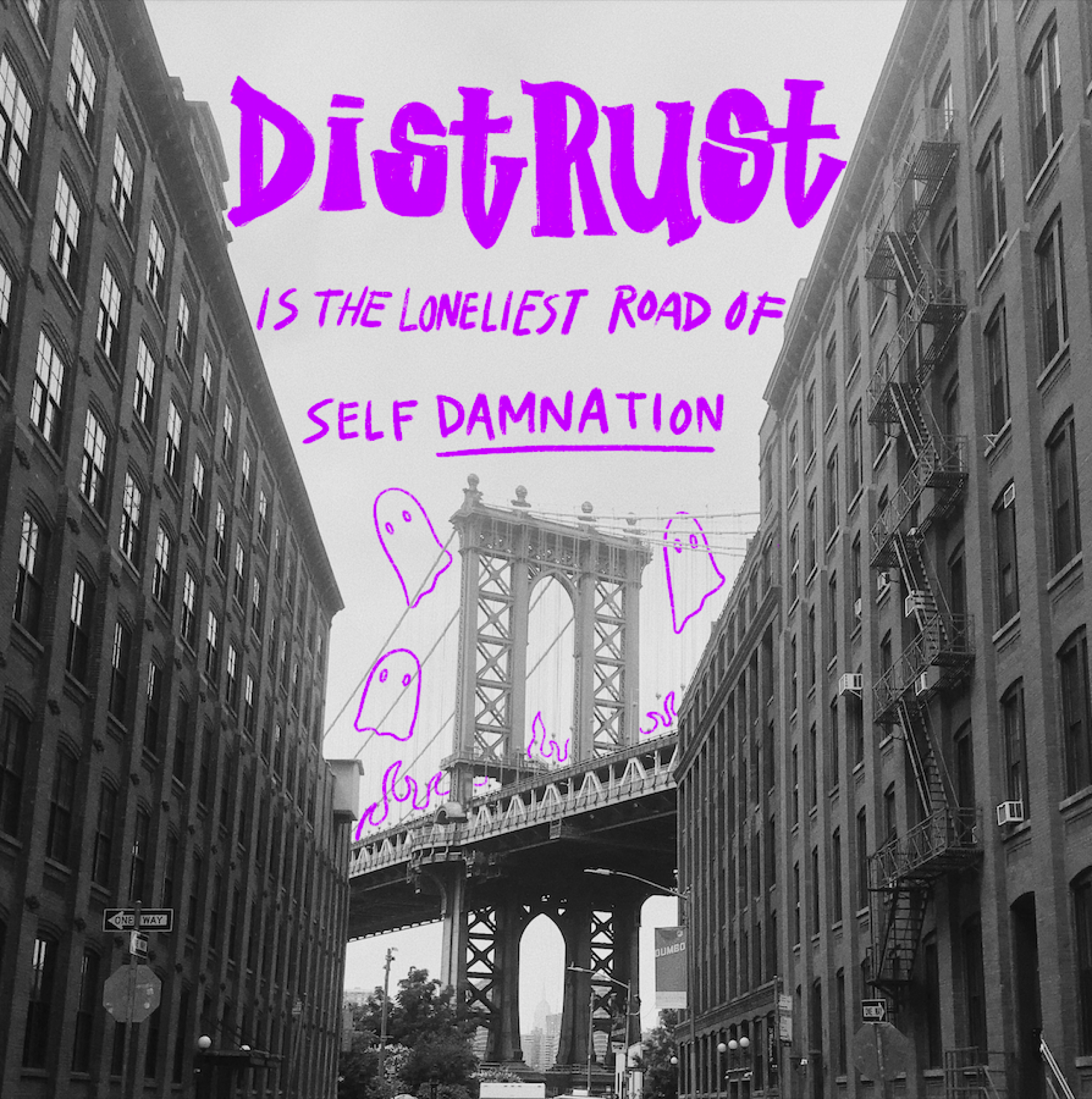
I like to think of OCD sufferers as a dog in the shelter. When an abused dog finally gets adopted, it’s going to hide in a corner. It will growl and show its teeth, even to the hand that’s feeding it. It spent years trying to protect itself, so why give up now?
But you can’t experience the true warmth of a home until you decide to take a nap, belly-side up and exposed. You can either starve in a corner until your fear kills you, or step out in faith that maybe what’s waiting on the other side is more loving than you expected. I hope you choose the latter.
Sobre el autor
Hi! I'm Esther, and I'm a copywriter at Made of Millions :)
Apoya nuestro trabajo
Nuestra misión es cambiar la manera en que el mundo percibe la salud mental.



















